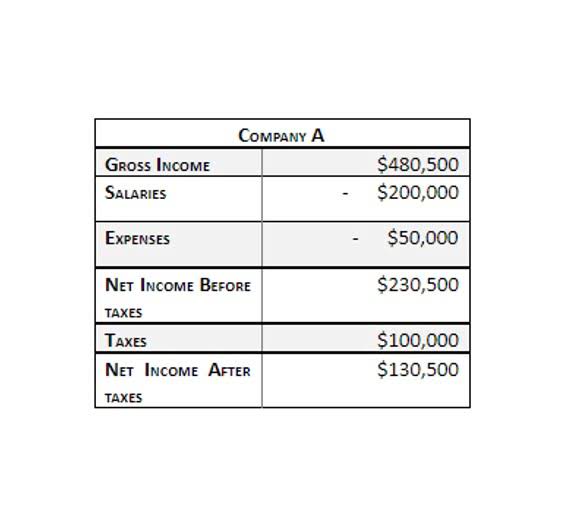
Other certification options include the chartered global management accountant (CGMA) credential. Offered by the Chartered Institute of Management Accountants, candidates must pass a multi-part exam to become a CGMA. As a generic accountant, a financial accountant’s tasks may vary from that of a general accountant, who is self-employed and does not work for an organization. Integrity Network members typically work full time in their industry profession and review content for Accounting.com as complete the following comparison table between managerial and financial accounting a side project. All Integrity Network members are paid members of the Red Ventures Education Integrity Network. Accounting.com is committed to delivering content that is objective and actionable.
- The general purpose of financial statement reporting is to provide information about the results of operations, financial position, and cash flows of an organization.
- Therefore, the primary key difference between the two are the ultimate purpose of the study.
- Both generally follow professional standards and rules, but managerial accounting also follow internal or organizational reporting standards.
- As one of the three main financial statements of a company, it complements the income statement and balance sheet to give a complete picture of a company’s true financial status.
More Related Content
There have been arguments as to which between financial accounting and managerial accounting is more important, but is somewhat pointless. The key differences between managerial accounting and financial accounting relate to the intended users of the information. This is not the case with managerial accounting, as there can be reasons to highlight information that is particularly relevant or even downplay information that is not. For example, you might want to bury lower bonuses in an overall number for expenses to avoid angering midlevel to lower-level employees who peruse the report. Financial statements generated via financial accounting can be useful for analysis if compared over time, compared across companies, or compared against industry benchmarks.
Better Strategic Planning
- The entire financial accounting process adheres to standard principles and frameworks, such as Generally Accepted Accounting Principles (GAAP) and the Financial Accounting Standards Board guidelines.
- It focuses on understanding costs and benefits to provide managers with detailed information.
- The purpose of the reporting done by management accountants is more specific to internal users.
- In managerial accounting, the quantity and dollar value of the sales of each product are likely more useful.
- Non-monetary events (employee satisfaction, goodwill, etc.) are not included even though they directly influence a business’s performance.
It is more concerned with the operational use of assets and how they can be best deployed to generate more revenue. In this situation, a management accountant can examine sales volume, pricing strategies, and customer feedback. One possibility is that although the volume of sales is high, the pricing strategy is quite aggressive, which is affecting revenue. This equation must always balance as it reflects that all assets are financed either through debt (liabilities) or shareholders’ equity. Understanding and analyzing financial ratios is equally critical here, mainly the current ratio (current assets divided by current liabilities), which measures liquidity. A higher debt-to-equity ratio, on the other hand, reflects that a company is more dependent on borrowing to finance its growth and operations.
Financial Accounting vs. Managerial Accounting: What’s the Difference?

Financial accounting records only transactions that can be quantified in monetary terms. Non-monetary events (employee satisfaction, goodwill, etc.) are https://keluarga88slot.com/illinois-tax-calculator-2024-2025-estimate-your-2/ not included even though they directly influence a business’s performance. Budget analysts track spending to help organizations improve efficiency, while financial analysts use financial data to mitigate risk and capitalize on opportunities. Both career paths have similar progressions from staff accountant to senior accountant and accounting manager. Yet the specific job titles and career progression depend on the branch of accounting.
How Are Managerial and Financial Accounting Careers Different?
The purpose of the reporting done by management accountants is more specific to internal users. Management accountants make available the information that could assist companies in increasing their performance and profitability. Unlike financial reports, management reporting centers on components of the business. By dividing the business into smaller sections, a company is able to get into the details and analyze the smallest segments of the business. The general purpose of financial statement reporting is to provide information about the results of operations, financial position, and cash flows of an organization. Financial accounting is the branch of accounting focused on recording, summarizing, and reporting a company’s financial transactions.

Its primary purpose is to provide an accurate and standardized overview of a business’s financial performance and position over Mental Health Billing a specific period. This information is compiled into financial statements, such as the balance sheet, income statement, and cash flow statement. Since these external people do not have access to the documents and records used to produce the financial statements, they depend on Generally Applied Accounting Principles (GAAP).

Users of Financial Accounting Information

It involves forecasting sales and revenue to anticipate potential costs, risks, and opportunities a company might face. However, these can also include scenario and sensitivity analyses that explore different hypothetical situations to understand their potential impact on the business. This can help an organization develop contingency plans and allocate resources accordingly to meet its long-term goals. If you’re new to accounting, you can take a similar educational path to either career. Gaining experience in entry-level financial or management accounting roles can help you decide where to further specialize.

These internal users may include management at all levels in all departments, owners, and other employees. For example, in the budget development process, a company such as Tesla may want to project the costs of producing a new line of automobiles. Although outside parties might be interested in this information, companies like Tesla, Microsoft, and Boeing spend significant amounts of time and money to keep their proprietary information secret. Therefore, these internal budget reports are only available to the appropriate users. For example, in the budget development process, a company such as Tesla may want to project the costs of producing a new line of automobiles.
It informs all stakeholders of the financial state of the business so managers, investors and owners can make intelligent, informed decisions to succeed. The company’s regulatory as well as reporting obligations will determine which accounting standards are used throughout financial accounting. Now, with that information, how is managerial accounting different from financial accounting? Well, if you remember from the first modules in this course, financial accounting focuses on recording transactions as they occur.
The reason is that it can affect everything from the company’s share price in the stock market to its ability to secure loans from external institutions. Managerial accounting is a forward-looking concept that focuses on future outcomes using current and historical data. It is primarily historical in nature, recording what has already happened by summarizing financial transactions that previously occurred during a specific period. Maximizing a company’s productivity and profitability requires effective resource allocation, and accounting helps with that. It provides a detailed cost-benefit analysis to make the best decisions about where to allocate which resources so that they are used efficiently and produce good ROI. Let’s say a business witnesses increasing production costs; managerial accounting might reveal how a specific process is less efficient than expected.


